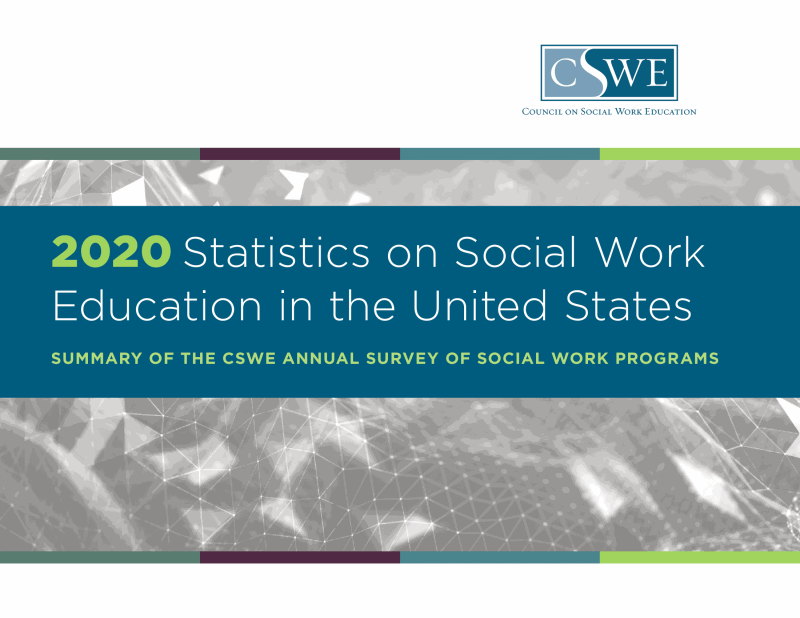Published on : March 1, 2022

Enrollment increased over 1% at accredited social work programs offering baccalaureate (1.3%) and master’s (1.7%) degrees from 2019-2020, according to the results of a survey from the Council on Social Work Education (CSWE). This increase happened despite a 3.3% decline in total enrollment in higher education, according to sources.
In fact, enrollment in social work programs has increased consistently for 10 years, according to the findings of the 2020 CSWE Annual Survey of Social Work Programs.
“It is encouraging to see that so many students are choosing to pursue a degree in social work despite the challenges created by the pandemic on higher education, not to mention each of our communities,” said CSWE President and CEO Darla Spence Coffey, PhD, MSW. “Our society needs social workers who are guided by a person-in-environment framework, can identify and dismantle racism in their practice, and enhance the quality of life for all persons. We know that accredited social work programs rigorously prepare students for successful careers in social work by adhering to these core values.”
The number of baccalaureate programs increased by 3.2% over the past year and the survey results also show the evolving demographics of social work students. The majority of baccalaureate students are female (87%) and younger than 25 (63.6%). African American/Black (non-Hispanic) students made up 21.7% of the enrolled students, whereas 49.1% were White (non-Hispanic) and 17.9% were Hispanic/Latinx.
The number of master’s programs increased 14.3% last year. The majority of master’s social work students were female (85.1%) and 25 years old or older (76%). African American/Black (non-Hispanic) students were 20% of the enrolled students, whereas White (non-Hispanic) students were 50.8%, and Hispanic/Latinx students were 15.8%.
Of concern, the survey also revealed that the debt load has increased for some social work students. This is particularly striking when looking at the changes over a 10-year period. In 2020, the average loan debt amount for master’s graduates was $47,965, compared to $32,198 in 2010. On average, baccalaureate graduates had $27,264 in loan debt in 2020, compared to $24,683 in 2010.
Read the full report for full details.
Contact: Patrick Dunne, 703-489-4952, [email protected]
